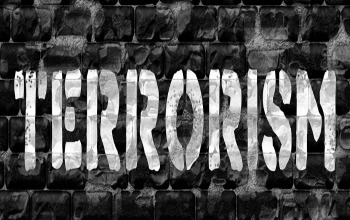We’ve all heard about wars waged by ISIS in the Middle East but it seems that the threat is about to hit Asia hard as these Muslim terrorists have started expanding their caliphate. For almost a month now, the Philippine government is battling the Maute rebels that have pledged allegiance to ISIS in the battleground that is now Marawi in the southern part of the Philippines. It is being led by Isnilon Hapilon, who has a $5-million bounty on the head and included in the US list of most wanted terrorists. Innocent residents of this inland city have been evacuated but some have already fallen along with Philippine soldiers who came to their aid and are in hot pursuit of the local terrorist group.
 It’s not ISIS fighters yet who took over the city but it has been a while since they have started recruiting in this part of the world. There were even other neighboring Asians like Malaysians and Indonesians who joined the Maute group during the attack, which is why the entire island of Mindanao has been put under Martial Law. As the Islamists are losing the battle on their turf (especially in Syria), they were reportedly planning to move and create a new terrorist hub in Southeast Asia. It is indeed very alarming news for the many Southeast Asian nations who aren’t equipped to deal with this kind of terrorism.
It’s not ISIS fighters yet who took over the city but it has been a while since they have started recruiting in this part of the world. There were even other neighboring Asians like Malaysians and Indonesians who joined the Maute group during the attack, which is why the entire island of Mindanao has been put under Martial Law. As the Islamists are losing the battle on their turf (especially in Syria), they were reportedly planning to move and create a new terrorist hub in Southeast Asia. It is indeed very alarming news for the many Southeast Asian nations who aren’t equipped to deal with this kind of terrorism.
Southeast Asia’s jihadis who fought by the hundreds for the Islamic State group in Iraq and Syria now have a different battle closer to home in the southern Philippines. It’s a scenario raising significant alarm in Washington.
The recent assault by IS-aligned fighters on the Philippine city of Marawi has left more than 300 people dead, exposing the shortcomings of local security forces and the extremist group’s spreading reach in a region where counterterrorism gains are coming undone.
Defense Secretary Jim Mattis told Congress last week that a long-running U.S. military operation to help Philippine forces contain extremist fighters was canceled prematurely three years ago. Small numbers of U.S. special forces remain in an “advise and assist” role, and the U.S. is providing aerial surveillance to help the Philippines retake Marawi, an inland city of more than 200,000 people.
(Via: http://www.businessinsider.com/ap-islamic-state-poses-a-growing-threat-to-southeast-asia-2017-6)
Many homes and properties have been destroyed as the government continues to strike the terrorists from the air. The Islamic State will not easily give up without a fight and they will try to bring as many as they can down because of their radical and otherworldly views in life especially religion.
Survival has become a daily battle in Marawi, the capital of Mindanao’s Lanao del Sur province and whose mostly Muslim 200,000 population make the city the biggest Islamic community in what is otherwise an overwhelmingly Catholic country. Villarosa, a teacher in Marawi, was handing out wedding invitations when black-clad fighters of what the locals call Grupo ISIS swarmed the streets. She ran, hid, and took shelter in a nearby house with 38 other people. Outside, she heard, her workplace Dansalan College was burning, and Christians were being killed. “We rescued ourselves—no military,” says Villarosa. “We had to run, walk, crawl.” Seven of her colleagues, including the school’s principal, were unaccounted for, but, low on food and water, and with news that the military was set to bomb the area, Villarosa decided to get to the sanctuary of city hall. “It looked like a movie outside, it looked like The Walking Dead,” she says, referring to the post-apocalypse U.S. TV series.
The battle for Marawi began on May 23, when the Philippine military tried to capture Isnilon Hapilon, the head of a southern militia that has pledged loyalty to ISIS leader Abu Bakr al-Baghdadi. But the army met fiercer than expected resistance. Allied with another pro-ISIS brigade called the Maute Group, Hapilon’s fighters took a priest and his congregation hostage, freed prisoners from the local jail, and overran the city. More than three weeks later, the fighting persists, hundreds have died—militants, soldiers, civilians—and hundreds more residents remain trapped in the city. Many have no electricity or running water. Food stocks are diminishing fast. As residents seek safety, much of Marawi has become a ghost town.
(Via: http://time.com/marawi-philippines-isis/)
Everybody loses in wars. Only the terrorists feel an evil sense of satisfaction in wreaking havoc to our modern world. It’s the civilians that suffer the most because some may die and many get injured and they often don’t have any more homes to return to aside from finding yourself in a limbo as the war drags on. Barely a year into office, Philippine President Rodrigo Duterte has worked hard to address the drug problem of the nation but he now faces a different even bigger-scale problem that requires help from other nations like America. The Islamic State isn’t giving up that easily, so the war drags on and the government will do its best to wipe out these terrorists and establish peace and order in the war-torn city of Marawi.
For now, everything is put on hold. No more worries over trade and business when it’s the people’s lives in danger. Businesses, big and small, are non-existent. In its wake, you can hear fighter jets dropping bombs on suspected Maute hiding spots or the continuous sound of gunfire. Everyone fled their homes to spare their lives from the brutal attack of the Maute militants who even dare raised the Islamic State’s flag in the city. Christians are killed. Their Muslim brothers and sisters teach the Christians various Muslim prayers in an attempt to spare them from the Maute’s wrath. While many are hopeful that the government can take control of the situation, many can’t still breathe a sigh of relief until that day comes.
